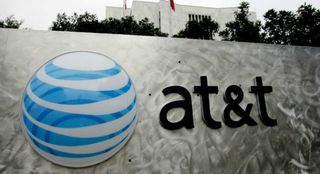FCC Proposes $100 Million Fine Against AT&T

Signaling that slowing broadband speeds is not an acceptable business model, the FCC’s Enforcement Bureau Wednesday (June 17) proposed fining AT&T Mobile $100 million over its maximum bit rate approach to what AT&T says is a small minority of unlimited plan users whose heavy use could impair others’ online experience.
The FCC says AT&T violated the 2010 network neutrality order transparency rule by labeling the service "unlimited" and not sufficiently telling customers what their maximum speed would be under its maximum bit rate policy. The FCC said it had received thousands of complaints about the AT&T policy. The commission said millions of customers were affected and that "customers who were subject to speed reductions were slowed for an average of 12 days per billing cycle, significantly impeding their ability to use common data applications such as GPS mapping or streaming video."
"The FCC’s investigation alleges that AT&T severely slowed down the data speeds for customers with unlimited data plans and that the company failed to adequately notify its customers that they could receive speeds slower than the normal network speeds AT&T advertised," the bureau said.
AT&T disputes the characterizations.
“We will vigorously dispute the FCC’s assertions,” AT&T said in a statement. “The FCC has specifically identified this practice as a legitimate and reasonable way to manage network resources for the benefit of all customers, and has known for years that all of the major carriers use it. We have been fully transparent with our customers, providing notice in multiple ways and going well beyond the FCC’s disclosure requirements.”
The FCC has a new Internet conduct standard that ISPs are concerned could be used to target data caps and usage-based pricing, but FCC chairman Tom Wheeler's concern over slowing speeds predates that. Wheeler has made broadband speed a priority, including wireless providers delivering on advertised speeds.
“Consumers deserve to get what they pay for,” said Wheeler following the announced fine. “Broadband providers must be upfront and transparent about the services they provide. The FCC will not stand idly by while consumers are deceived by misleading marketing materials and insufficient disclosure.”
Broadcasting & Cable Newsletter
The smarter way to stay on top of broadcasting and cable industry. Sign up below
“Unlimited means unlimited,” added FCC Enforcement Bureau chief Travis LeBlanc. “As today’s action demonstrates, the Commission is committed to holding accountable those broadband providers who fail to be fully transparent about data limits.”
AT&T says it has been transparent with customers about its Maximum Bit Rate program.
AT&T has pointed out to the FCC that in the commission’s staff report on the proposed AT&T/T-Mobile deal back in 2011, the commission said it approved of speed reduction policies as an “innovation” because they “allow subscribers to continue sending and receiving data after reaching monthly data cap without incurring expensive overage fees” and instead authorizes carriers to implement “reduced data speeds.”
AT&T has also pointed out that in the Comcast-BitTorrent order, the FCC said that Comcast had other options for managing traffic including to "throttle back the connection speeds of high capacity users..."
Wheeler has long signaled he was troubled by slowing speeds, criticizing a Verizon plan to "manage data connection speeds for a small subset of its customers—the top 5% of data users on unlimited data plans" when there is high demand. In a letter to Verizon, Wheeler said: "'Reasonable network management' concerns the technical management of your network; it is not a loophole designed to enhance your revenue streams."
Then following that letter, Wheeler asked the other mobile carriers, including AT&T, for a raft of info on their network management practices, what is reasonable management, and expressing concerns similar to those in a letter to Verizon.
The proposed fine comes as AT&T is trying to get its merger with DirecTV through the FCC and Justice.
Consumers Union was pleased with the FCC's action.
“Unlimited should mean unlimited, no excuses or loopholes. Not only does it seem clear that AT&T wasn’t providing the services that consumers expected and were paying for, but they also weren’t upfront with their customers about the extent to which their speeds were being slowed down,” said policy counsel Delara Derakhshani.
Contributing editor John Eggerton has been an editor and/or writer on media regulation, legislation and policy for over four decades, including covering the FCC, FTC, Congress, the major media trade associations, and the federal courts. In addition to Multichannel News and Broadcasting + Cable, his work has appeared in Radio World, TV Technology, TV Fax, This Week in Consumer Electronics, Variety and the Encyclopedia Britannica.

